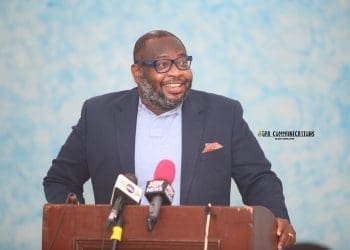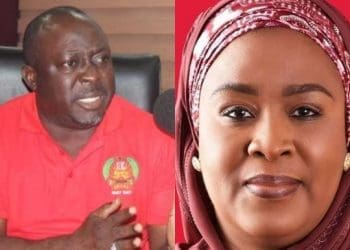Cameroon’s President Paul Biya has been re-elected for an eighth term that could keep him in office until he is nearly 100, according to official results announced on Monday by the Central African country’s Constitutional Council.
“Hereby proclaimed President-elect: the candidate Biya Paul,” said Clement Atangana, president of the Constitutional Council.
Biya, 92, took office in 1982 and has held a tight grip on power ever since, doing away with the presidential term limit in 2008 and winning reelection by comfortable margins.
This year, his strongest challenge came from Issa Tchiroma Bakary, a former government spokesperson and employment minister in his late 70s, who broke ranks with Biya earlier this year and mounted a campaign that drew large crowds and endorsements from a coalition of opposition parties and civic groups.
Official results announced on Monday showed Biya winning 53.7% of the vote, compared with 35.2% for his main challenger, Issa Tchiroma Bakary. Opposition groups, however, had rejected the outcome, alleging widespread fraud and irregularities that they said heavily favoured the incumbent.
Tensions flared in the days following the October 12 poll. Bakary, a former ally turned rival, appeared on video claiming victory, while his Union for Change coalition released a statement declaring him the “ People ’s Consensus Candidate” and asserting that results from polling stations showed he had won between 60% and 80% of the vote.
Protests erupted as the official proclamation loomed, leading to violent clashes in Douala that left at least four people dead. Bakary later called for calm and urged supporters to respect the results of the vote, even as opposition leaders vowed to challenge the outcome.
Cameroon’s elections have long been shadowed by allegations of manipulation and repression.
The International Foundation for Electoral Systems describes the country as an “electoral autocracy” — one that holds regular polls but consistently fails to meet basic democratic standards.
“People don’t trust the process,” said Tony Vinyoh, a Cameroonian journalist, in an interview with Global South World in September. “I’ve talked to some parents, and they don’t even want to register their kids.”
Biya is only Cameroon’s second president, succeeding Ahmadou Ahidjo, who led from independence in 1960 until his resignation in 1982. Ahidjo’s decision to appoint Biya as his successor backfired when the new leader later had him tried and sentenced to death — a penalty later commuted to life imprisonment.
Cameroon has never held a presidential election without Biya on the ballot. He ran unopposed in 1984 when the country was still a one-party state, and narrowly won in 1992, the first multiparty election. His vote share has not fallen below 70% until this year.
Biya did not appear during the proclamation, fuelling speculation about his health and ability to govern.
In 2024, the ageing president vanished from public view for 42 days, reigniting debate over whether he remains fit to lead a nation still battling insurgency and lagging behind many of its African neighbours in development.












